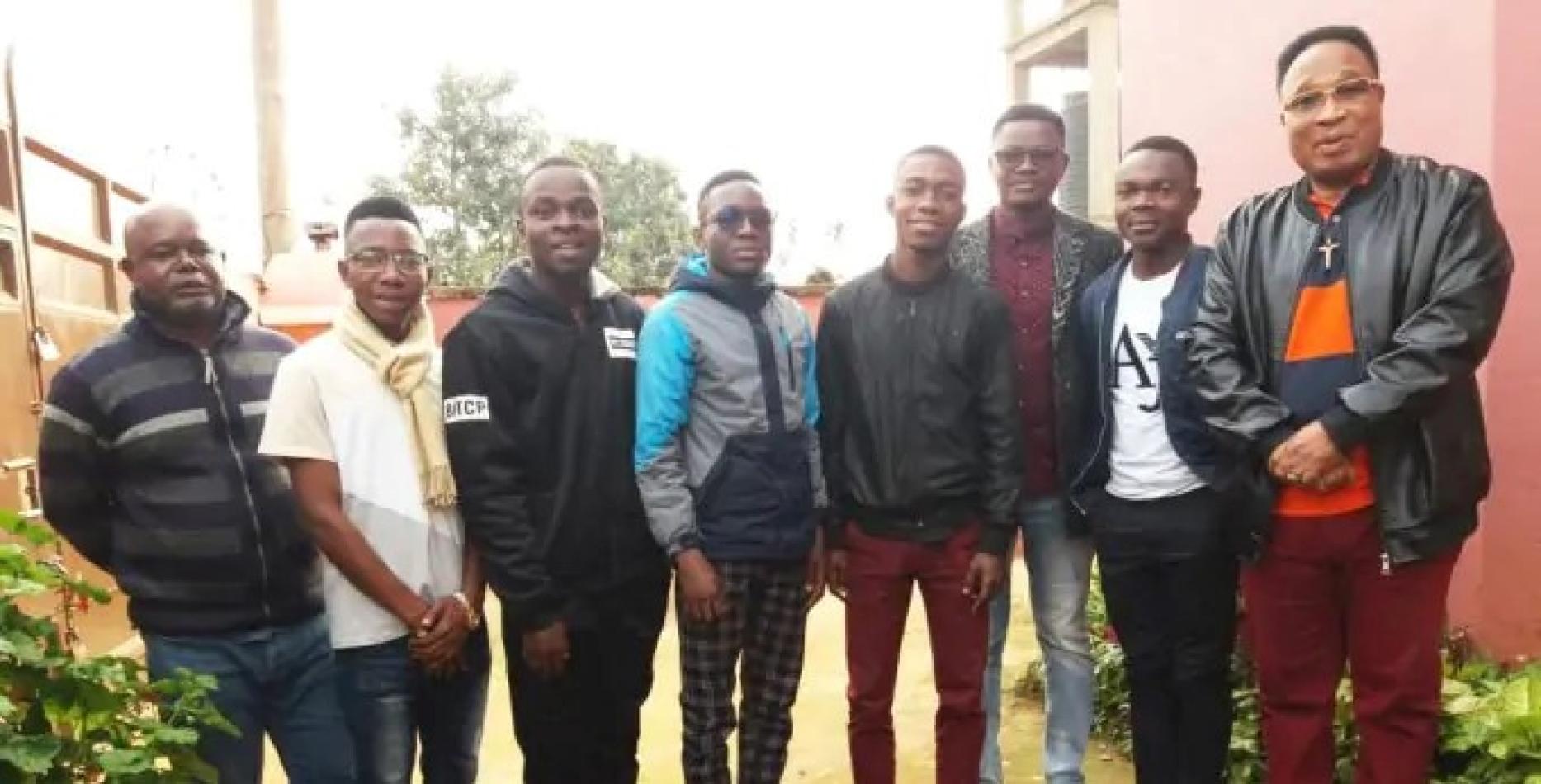Daniel Comboni
Comboni Missionaries
Institutional area
Other links
Newsletter
Wednesday, January 25, 2023
Last Sunday, January 22, a Postulant of the Comboni Missionaries (MCCJ) in the Democratic Republic of Congo (DRC) is admitted in hospital with gun injuries on his leg following an attack allegedly by Mai-Mai Kata Katanga rebels. The attack has happened days before Pope Francis begins his previously postponed trip to two African countries, from January 31 – February 5: Democratic Republic of Congo and South Sudan. [ACI Africa]
In a statement issued Monday, January 23, MCCJ Superior Provincial in DRC confirms the Sunday, attack on a Comboni Brothers’ vehicle in the country’s Butembo-Beni Diocese and says that medical personnel at Matanda hospital are attending to the 22-year-old student of philosophy, “to extract the bullet lodged in his leg”. “In the morning of Sunday, 22 January at 7:00 a.m., Mai-Mai rebels attacked the vehicle of our Comboni Brothers which was returning from the farm,” Fr. Léonard Ndjadi Ndjate says. He adds, “MAI-MAI rebels fired mercilessly at the vehicle and the bullets pierced the wheels.”
pictured, third from left.
“One bullet hit the leg of postulant, Héritier Mambaya, aged 22, from Bumba. Héritier is in the third year of his postulancy training,” Fr. Ndjadi says in the January 23 statement. “The postulant is in Matanda hospital in Butembo where they are trying to extract the bullet lodged in his leg,” the MCCJ Superior General in DRC further says, and adds, “We await news on the evolution of his health.”
Entrusting this incident to the intercession of St. Daniel Comboni, Fr. Ndjadi goes on to condemn “in the strongest possible terms this barbaric and criminal attack against innocent people”. He says he finds it regrettable that the forces of law and order are unable “to provide security for the people in Eastern DRC.”
Fr. Ndjadi urges the people of God in the Central African nation “to pray for peace in the Eastern region and throughout Africa”. “May God grant our young man a speedy recovery and the necessary health,” he adds.
The January 22 attack has happened days before Pope Francis begins his previously postponed trip to two African countries. Like the itinerary in the postponed visit, the January 31 – February 5 two-African-nation trip is scheduled to begin in the capital city of DRC, Kinshasa, and conclude in South Sudan’s capital city, Juba. Pope Francis had planned to visit the Eastern city of Goma when the trip was officially announced, but that leg of the trip was canceled in the updated schedule that the Vatican released on December 1 amid insecurity in Eastern DRC.
The Holy Father will first travel to Kinshasa, where he will meet with the country’s authorities, victims of the conflict in the Eastern part of the country and representatives of charitable organizations, celebrate Holy Mass, meet with young people, Catholic Bishops, and Jesuits in DRC. DRC has been experiencing violent clashes in the East, particularly in the Ituri, Kasai, and Kivu regions, Global Conflict Tracker has reported.
Dozens of armed groups are believed to operate in the Eastern region of the Central African nation despite the presence of more than 16,000 UN peacekeepers. On January 15, an explosive device was reportedly detonated at the Church of Christ Congo, (ECC-CEPAC) in the Eastern Congolese city of Kasindi, on the border with Uganda, leaving 39 people injured.
Following the attack, the Bishop of Butembo-Beni Diocese expressed his solidarity with the victims of the attack. “The Diocese of Butembo-Beni presents its Christian condolences to the families affected by this heinous act, and reassures them of its fervent prayers in this time of trial,” Bishop Melchisedec Sikuli Paluku said in the statement shared with ACI Africa.
He added, “The Diocese of Butembo-Beni reminds us that anyone who kills is against God's plan”. The Catholic Bishop urged “those who have the regalian obligation to protect citizens as well as their property to scrupulously enforce the principle of the sacredness of life and the inviolability of places of worship.”
[Jude Atemanke – ACI Africa]




